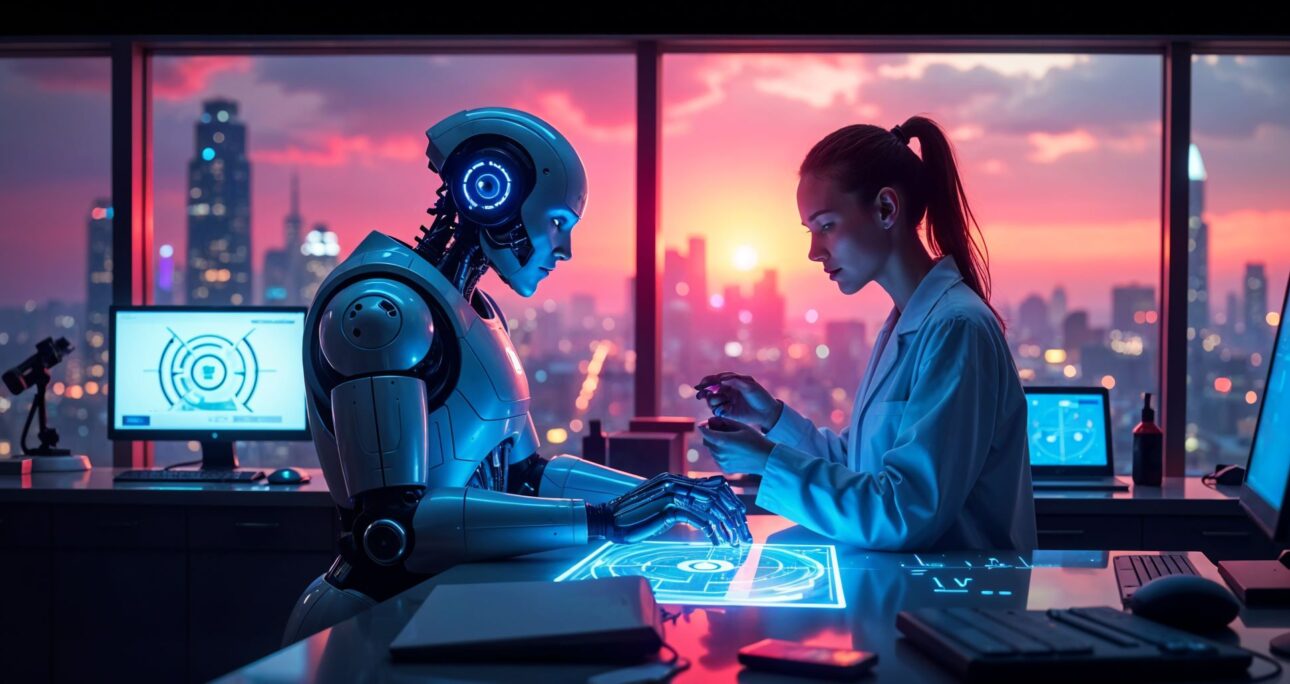In an era where remote work is becoming the norm, the role of Artificial Intelligence (AI) in enhancing team collaboration cannot be overstated. Indeed, AI is not just a buzzword; it’s a transformative force that is reshaping how remote teams operate, communicate, and achieve their goals. Therefore, this article explores the innovative ways AI is revolutionizing remote collaboration and highlights what it means for the future of work.
The Evolution of Remote Work
Remote work has evolved from a temporary solution to a permanent fixture in the business world. This shift is driven by advancements in technology, changing workforce expectations, and the increasing need for flexibility. However, with this evolution come challenges that AI is uniquely positioned to address. As a result, organizations are looking to AI to tackle these challenges and enable smoother transitions to remote work setups.
AI-Driven Communication Enhancements
Effective communication is, without a doubt, the backbone of any successful remote team. For this reason, AI-powered tools are enhancing communication by providing real-time language translation, sentiment analysis, and context-aware suggestions. For example, platforms like Microsoft Teams and Slack are integrating AI to ensure messages are clear, concise, and contextually appropriate. Consequently, these tools are making remote communication more effective and seamless.
Real-Time Translation
Global teams often face language barriers. Fortunately, AI-powered translation tools like Google Translate and DeepL are breaking down these barriers by providing real-time translations. As a result, team members can communicate effortlessly across different languages, fostering greater inclusivity and collaboration.
Sentiment Analysis
Understanding the tone and sentiment behind messages is essential for maintaining a positive team dynamic. Thus, AI tools can analyze the sentiment of communications, enabling managers to address potential issues proactively before they escalate into larger problems.
Automating Routine Tasks
AI is transforming productivity by automating repetitive tasks, thereby allowing team members to focus on more strategic activities. Tools like Zapier and Automate.io are streamlining workflows, such as data entry and email sorting. Consequently, this significantly reduces the time spent on mundane tasks and increases efficiency.
Intelligent Scheduling
Scheduling meetings in remote teams can be challenging. Nevertheless, AI-driven scheduling assistants like Clara and x.ai are revolutionizing how meetings are arranged. These tools find optimal meeting times, send reminders, and even reschedule appointments based on participants’ availability. Therefore, teams can use their time more efficiently and reduce scheduling conflicts.
Enhancing Project Management
Project management is yet another area where AI is making a significant impact. Specifically, AI-powered platforms like Asana and Trello offer predictive analytics, suggest optimal workflows, and provide actionable insights to improve project outcomes. Consequently, these tools are helping teams work smarter and complete projects more efficiently.
Predictive Analytics
By analyzing past project data, AI predicts potential bottlenecks and offers ways to mitigate them. As a result, teams can take proactive steps to stay on track and consistently meet their deadlines. Therefore, AI has become indispensable in modern project management.
Workflow Optimization
Moreover, AI tools can recommend the best workflows based on the nature of the project and the team’s working style. This ensures that resources are utilized efficiently, deadlines are met, and projects are completed on time.
Building Stronger Team Connections
Maintaining team cohesion in a remote environment can be challenging. However, AI bridges this gap by facilitating virtual team-building activities and providing insights into team dynamics. Consequently, stronger connections are fostered among team members.
Virtual Team-Building
For example, AI-powered platforms like Donut are creating opportunities for remote team members to connect on a personal level. These tools facilitate virtual coffee chats and other informal interactions, helping to build stronger relationships over time.
Team Dynamics Analysis
Additionally, AI can analyze team interactions and provide managers with insights into collaboration patterns. This, in turn, helps identify areas for improvement and strengthens overall team performance.
The Future of AI-Powered Collaboration
As AI technology continues to advance, its role in remote collaboration will undoubtedly grow. For instance, future developments may include more personalized AI assistants, deeper integration with virtual and augmented reality, and increasingly sophisticated data analytics capabilities.
Personalized AI Assistants
AI assistants will become more personalized, offering tailored support based on individual team members’ preferences and working styles. Consequently, this will enhance productivity and ensure that each team member receives the support they need.
Integration with VR and AR
Moreover, integrating AI with virtual and augmented reality will create immersive collaboration experiences. Imagine virtual workspaces where team members can interact as if they were in the same room, regardless of their physical location. Undoubtedly, such innovations will redefine remote work.
Conclusion
In conclusion, AI-powered collaboration is transforming the way remote teams work. It offers solutions to the challenges of distributed work environments while unlocking new possibilities for productivity and engagement. By embracing AI tools today, organizations can prepare for a smarter, more efficient, and truly borderless future of collaboration.





